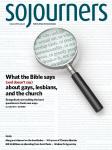CORNEL WEST and Christa Buschendorf have collaborated to bring forth a powerful look at the visionary legacies of 19th- and 20th-century African-American leaders. Black Prophetic Fire consists of six conversations between West and Buschendorf, each one focusing on a different black prophetic figure: Frederick Douglass, W.E.B. Du Bois, Martin Luther King Jr., Ella Baker, Malcolm X, and Ida B. Wells. In the book, West displays his wealth of knowledge and understanding of those prominent historical black icons and their movements.
For West, U.S. society has arrived at a pivotal point. He sees the “black embrace of the seductive myth of individualism in American culture” as reason enough to ask tough reflective questions such as, “Are we witnessing the death of black prophetic fire in our time?” and “Have we forgotten how beautiful it is to be on fire for justice?”
West is known as an intellectual and activist who loathes the unfair treatment of people anywhere, regardless of their race, gender, sexual orientation, or religious creed. His message of love, particularly for the younger generations, becomes the undertone of this book. Throughout the years, the black prophetic tradition has seen a decline in exemplars of integrity. West presents the conversations he had with Buschendorf as a history lesson and a call to younger generations to not let this tradition fizzle out.
The black prophetic tradition has improved the conditions of the black community in the U.S. It has also served as a moral compass for an American society that has failed to live up to the promises stated in its founding documents.
The irony, for West, is that in the era of the first black president, this prophetic tradition is at its weakest. The presidency of Barack Obama “conceals the escalating levels of social misery in poor and black America.” The myth of a post-racial society and Obama’s “friendly black face” have made it particularly difficult for radical voices to be heard. Disgraceful rates of incarceration, shameful unemployment levels, and the loss of a generation’s worth of wealth are the present reality for the black community, yet because of Obama’s presidency there is perceived to be significant progress for black people in the U.S.
While some might be tired of West’s critiques of President Obama, it should be noted that his criticism is consistent with that he’s had of every other president. Though West himself has never been the face of a movement, he carries on the legacy of the black prophetic tradition by courageously attacking empire, white supremacy, patriarchy, and other systems of oppression through his writing, teaching, and speaking.
In light of continuing protests in Ferguson, Mo., over the police killing of an unarmed black teenager and other controversial events, it would be a drastic mistake for black millennials to not heed West’s plea to continue on in the same vein as their ancestors. Malcolm X once said that “truth is on the side of the oppressed.” It is the truth that comes from the ugly depths of social misery and despair that black youth must use to expose the lies perpetrated by dominant society and build something better.
The conversations in this book offer a wealth of knowledge. I am reminded of the Akan term “sankofa,” which can be translated to mean “reach back and get it.” In other words, you must know where you have been to know where you are going. In this book, West puts this wisdom to use.

Got something to say about what you're reading? We value your feedback!